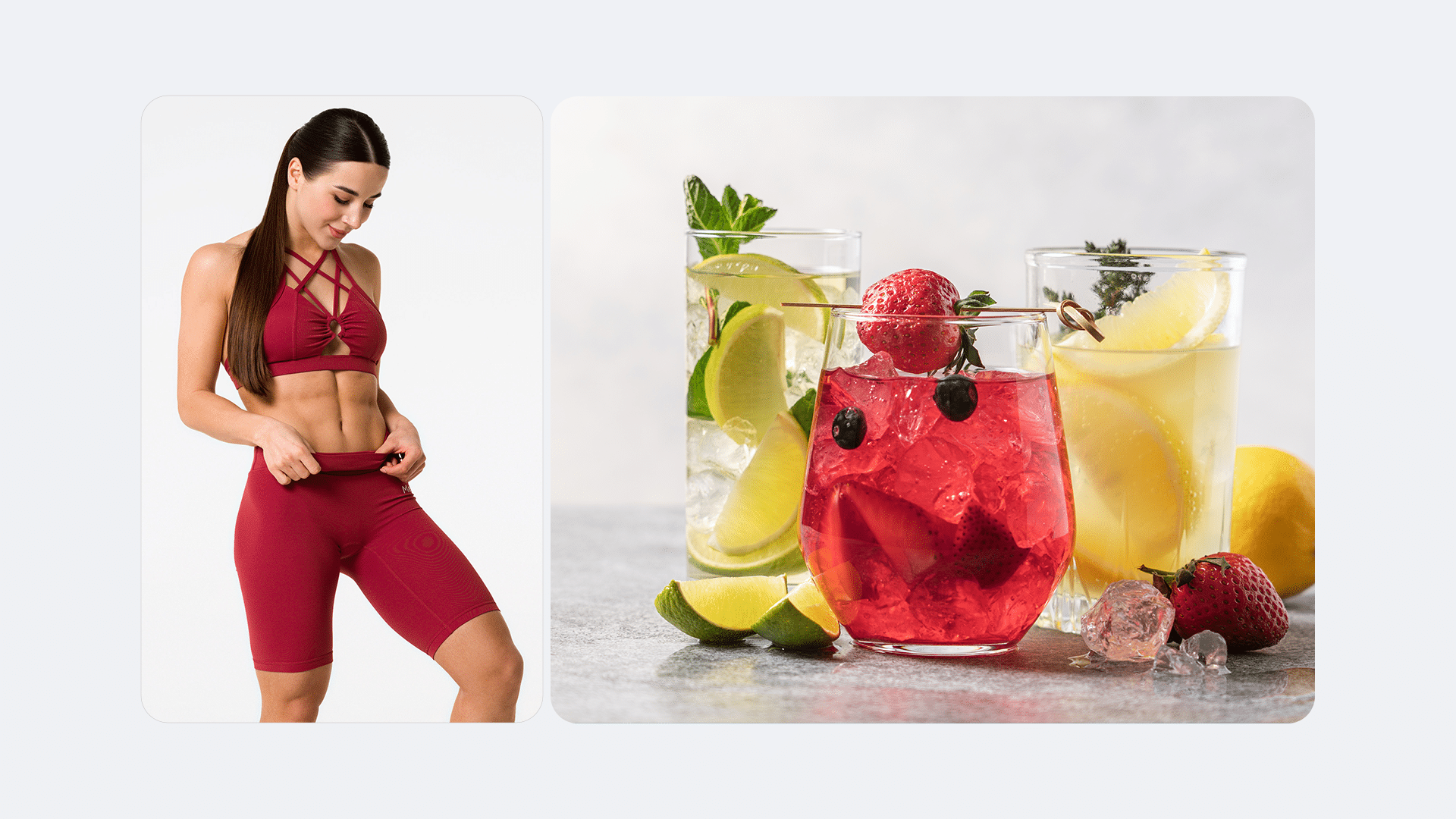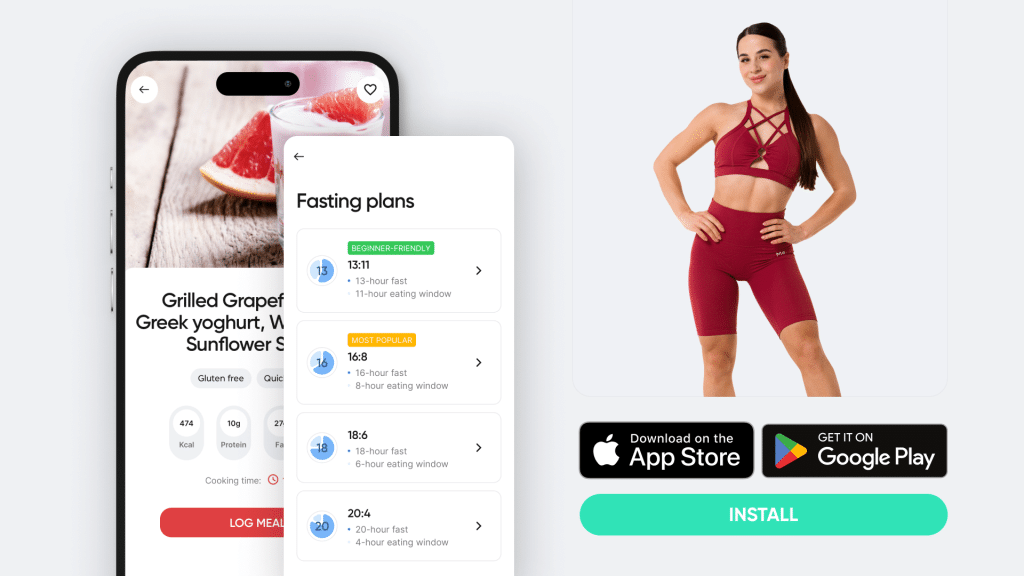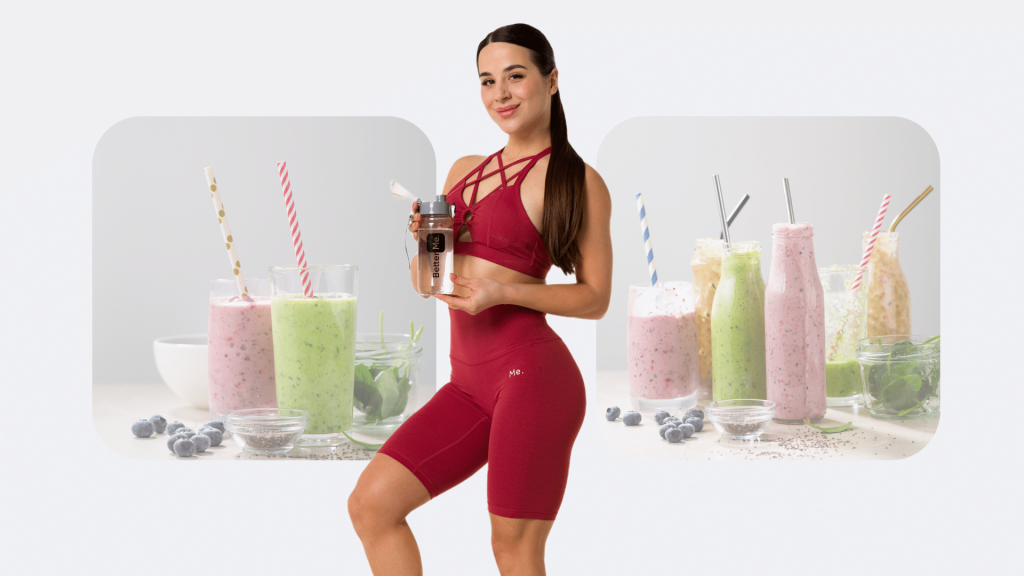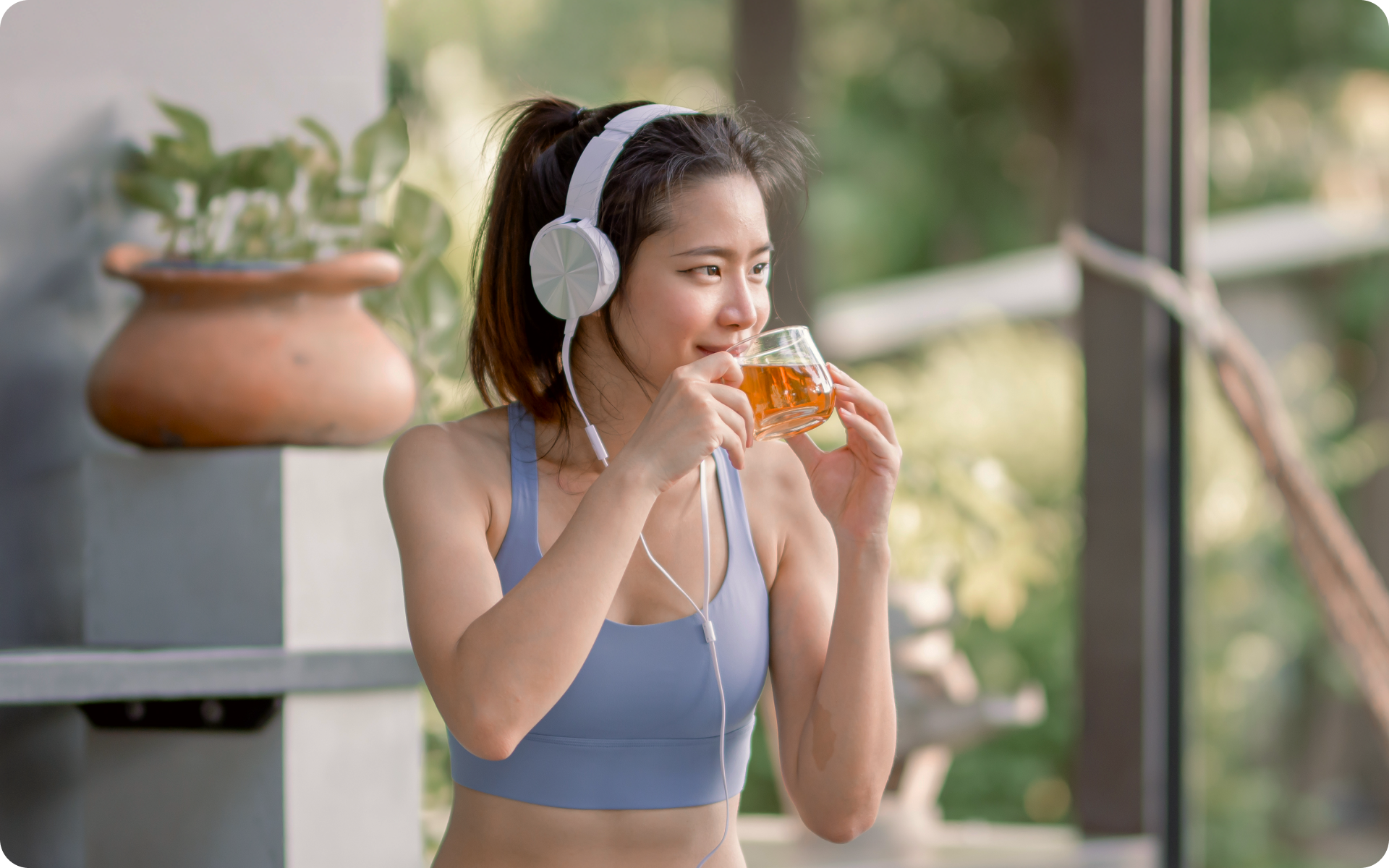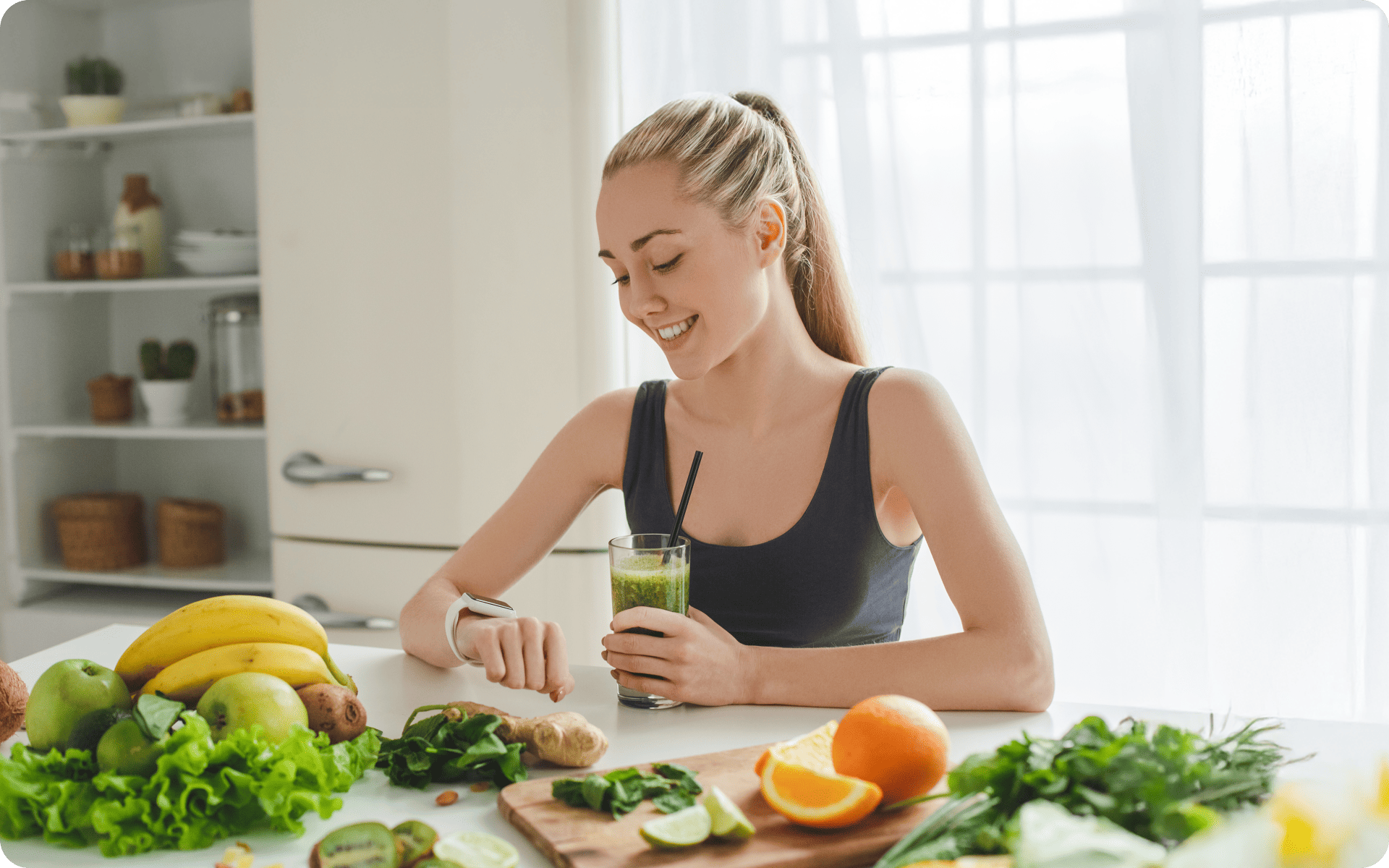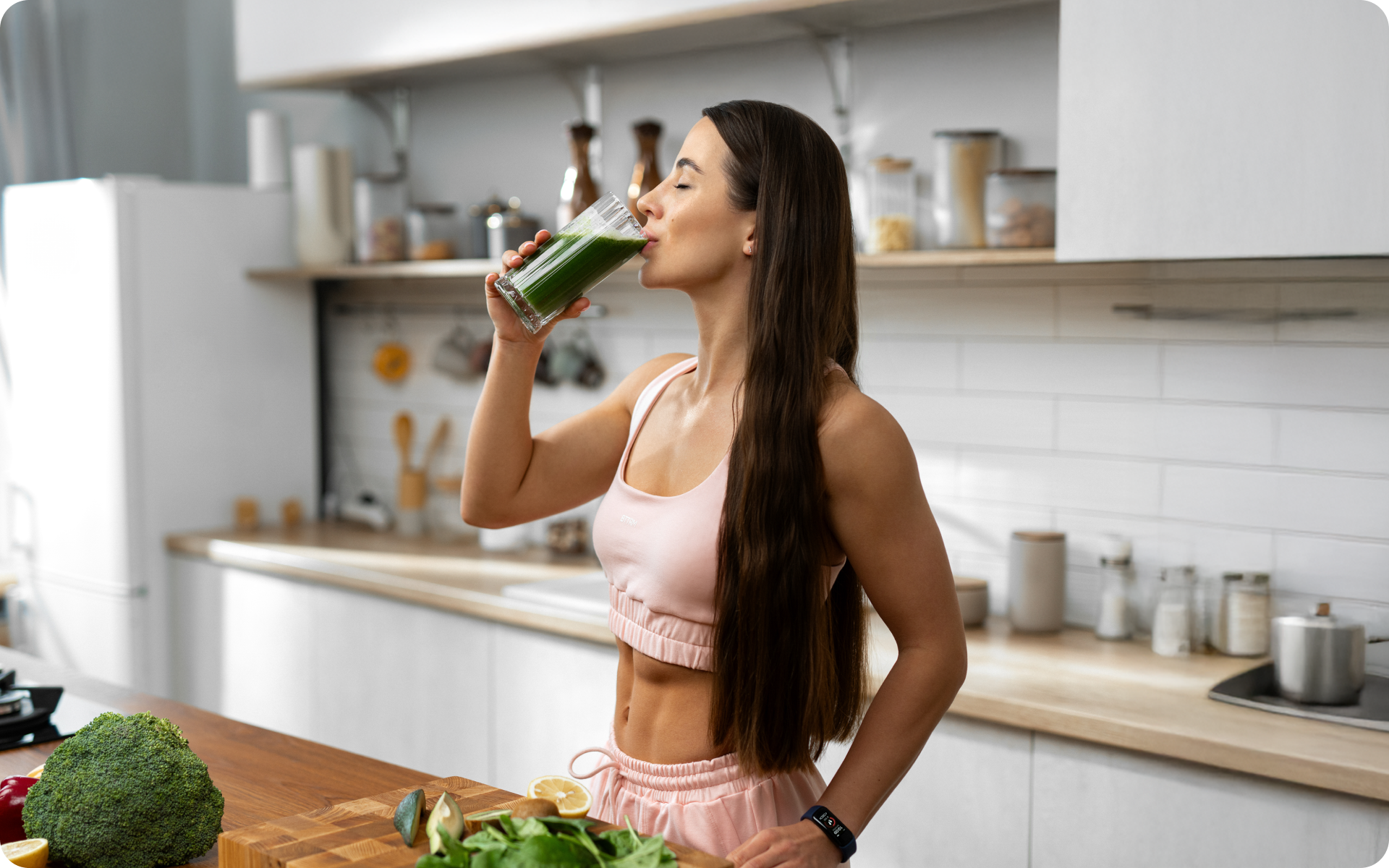Intermittent fasting has become a popular diet trend in recent years, and for good reason – proponents suggest that it can improve many aspects of health, including weight loss, blood sugar control, and even brain function. However, one of the most common questions asked by those practicing intermittent fasting is what they can drink during fasting periods. It’s an important question because many drinks can contain calories or spike insulin levels, which might ruin the health benefits of fasting altogether. In this blog post, we’ll take a look at several drinks that are acceptable to consume during intermittent fasting and ensure you stay on track to reach your goals.
Qualities To Look For In Beverages When Intermittent Fasting
Intermittent fasting is an attractive eating pattern that is said to provide many health benefits. That said, which beverages can you drink during your fasting periods? Here are six critical factors to consider when selecting those beverages that won’t disrupt your fast:
1. Zero Or Low-Calorie Content
Fasting involves abstaining from consuming most foods and certain beverages for a period of time. Consuming calorie-rich beverages can cause glucose and insulin levels to spike, thereby hindering the metabolic switch to ketosis and fat-burning. Knowing this, it’s best to opt for drinks with zero or negligible calorie content, such as water, coffee, tea, and other no-calorie beverages.
2. No Added Sugar Or Artificial Sweeteners
Many drinks contain artificial sweeteners which may cause an insulin response. Additionally, added sugar consumption will disrupt the fasting process. For best results, choose beverages containing no added sugars, natural sweeteners, or artificial sweeteners with unacceptable glycemic index values.
3. No Dairy Or Soy
Dairy and soy products contain proteins and carbohydrates which can activate carbohydrate metabolism and disrupt the fasted state. As a result, it’s best to avoid drinks such as milk, cream, cheese, and soy milk during fasting periods.
4. Non-Alcoholic
While some alcoholic beverages, such as wine, may have health benefits, they contain calories and carbohydrates that may break the fast. Moreover, excessive alcohol consumption can lead to dehydration, disrupt the metabolic process, and affect sleep quality (14). Therefore, individuals following an intermittent fasting diet should avoid alcohol during their fasting periods.
Read More: 7 Tips For Making The Perfect Cup Of Intermittent Fasting Coffee
5. Hydrating
Staying hydrated is essential when you’re fasting, to prevent dehydration and maintain overall health. Adequate hydration can also support satiety and help control hunger cues (18).
It’s best to drink non-sweetened beverages, such as water, sparkling water, herbal tea, and black coffee, to ensure hydration, without breaking your fast. Avoid beverages like fruit juice or soft drinks which contain high levels of sugar and may disrupt insulin and glucose levels.
6. Appropriate Caffeine Levels
Consuming caffeinated drinks within moderation – the equivalent of one to two cups of coffee a day, may enhance the benefits of intermittent fasting.
However, excessive caffeine consumption may lead to increased stress, disrupted sleep patterns, and elevated cortisol levels that negatively impact health (6). Therefore, it’s best to monitor caffeine intake and choose drinks that align with your overall health goals.
6 Beverages To Consume While Intermittent Fasting
Intermittent fasting diets involve limiting food intake and restricting carbs—however, this eating pattern doesn’t necessarily require complete abstinence from beverages. During your fasting window, here are eight beverages you can drink to stay hydrated and help you reach your health goals:
1. Plain Water
Plain water is the best beverage for hydration and offers many health benefits. It’s calorie-free, hydrating, and contains no sugar or additives, making it an ideal choice for anyone following intermittent fasting. Still water, mineral water, and sparkling water are all safe to drink on IF.
Consuming water helps maintain fluid balance, prevents dehydration, and supports healthy digestion. Additionally, drinking enough water has been shown to improve overall energy levels and cognitive function.
Remember to avoid flavored water, vitamin water, or sweetened water, as they may contain calories and disrupt fasting periods. Additionally, ensure to distribute water intake throughout the day to stay hydrated and maximize benefits.
2. Black, Sugarless Coffee
Coffee is a popular drink that can help maintain alertness while fasting. Coffee also contains antioxidants and natural compounds that may improve alertness, reduce inflammation, and aid weight loss. Drinking black coffee provides minimal calories and helps maintain calorie restriction during fasting periods.
Beware when adding cream, milk, or sugar to coffee. This will increase the calories and may break the fast. Additionally, excessive coffee consumption can lead to health problems such as insomnia and gastrointestinal distress. It can also aggravate symptoms of anxiety and increase stress.
BetterMe app will kick you out of the mental funk, shake off your extra weight, rid you off your energy-zapping habits, and help you sculpt the body of your dreams. Intrigued? Hurry up and change your life for the better!
3. Sugarless Tea (Herbal/Green/Black)
Tea is a popular beverage due to its health benefits, taste, and minimal calorie content. Herbal teas, green tea, black tea contain antioxidants that may help reduce inflammation and improve overall health (16).
Additionally, some herbal teas have been suggested to aid digestion, support weight loss, and reduce stress. Avoid adding sugar or other sweeteners to tea as this may break the fast. Additionally, be cautious of consuming more than four cups of tea per day to prevent dehydration and adverse effects from caffeine.
4. Apple Cider Vinegar
Apple cider vinegar is a controversial choice for intermittent fasting. Although it does not contain significant amounts of calories, some believe that it may stimulate digestion and disrupt hunger levels when consumed before meals. Additionally, apple cider vinegar is high in acetic acid and can irritate the gut if consumed in excessive doses on an empty stomach.
If you decide to include apple cider vinegar while intermittent fasting, dilute one tablespoon of apple cider vinegar in a glass of water and consume before meals.
Apple cider vinegar is said to have various health benefits. Drinking apple cider vinegar before meals is thought to reduce insulin response, encourage weight loss, and aid digestion. Additionally, apple cider vinegar has been suggested to support heart health by reducing cholesterol levels.
5. Lemon/Lime Water
Lemon/lime water is a low-calorie beverage that provides a refreshing taste while offering many health benefits. The citrus fruits contain antioxidants that help reduce inflammation and oxidative stress. Drinking lemon/lime water might also improve digestion and support a healthy gut microbiome. Rather than buying lemon/lime juices, prepare the beverage at home to avoid artificial sweeteners and added sugar. Squeeze one-half of a lemon or lime into a glass of water and enjoy before meals.
6. Diet Soda
Another controversial drink for intermittent fasting is diet soda. Diet sodas contain artificial sweeteners and provide a sweet taste without significant amounts of calories. However, some studies suggest that artificial sweeteners may disrupt hunger levels and lead to overeating when consumed with meals.
At the same time other studies suggest that diet sodas can help support weight loss. If consumed in moderation, diet soda can be an occasional treat while intermittent fasting.
A good way to enjoy diet soda is to observe how it affects your hunger levels and cravings. If drinking diet soda leads to increased hunger or cravings, it is best to avoid it while intermittent fasting.
Read More: Intermittent Fasting Exercise For Safe Weight Loss And Muscle Preservation
Healthy Beverages To Consume After Breaking Your Fast
The post-fast period is an opportunity to nourish your body with essential nutrients, rehydrate, and improve physical and cognitive function. Here are some healthy beverages recommended after breaking your fast, regardless of the type of intermittent fasting you follow. Note that consuming these beverages during your fasted state can break your fast and should be avoided.
1. Smoothies
Smoothies are an excellent way to consume a variety of nutrients in one serving. You can easily blend fruits, vegetables, protein, and healthy fats, based on your preferences. Here are some of the most nutritious smoothie ingredients and their respective health benefits:
- Spinach: Rich in vitamins A and C, iron, and antioxidants that support immune function and heart health (9).
- Berries: Contains high amounts of antioxidants that reduce inflammation and protect against chronic diseases (10).
- Chia seeds: Rich in omega-3 fatty acids, fiber, and protein that promote satiety and digestive health (13).
- Almond milk: Low in calories, rich in vitamin E, calcium, and phosphorus that promote bone health (12)
- Avocado: High in healthy fats, fiber, and antioxidants that support heart health and reduce inflammation (11).
2. Kefir
Kefir is a fermented dairy product known for its gut-healthy probiotics. Non-dairy alternatives like coconut kefir and water kefir are also available for those with lactose intolerance.
Here are some of the potential health benefits of kefir (15):
- Improves digestion and boosts gut health by providing healthy bacteria
- Provides protein, calcium, and other important nutrients
- For those who can tolerate dairy, low-fat milk and yogurt also provide similar benefits when fermented.
3. Green Juice
Green juices are nutrient-dense and provide the body with essential antioxidants, vitamins, and minerals. Here are some of the most nutritious green juice ingredients and their respective benefits (7):
- Kale: Rich in vitamins K, C, and A, fiber, and antioxidants that support immune function and healthy eyesight.
- Cucumber: Rich in water and antioxidants that promote hydration, inflammation reduction, and improve skin health.
- Celery: High in vitamins A, C, and K and antioxidants that reduce inflammation and support digestive health.
- Apple: Provides natural sweetness while containing fiber that promotes satiety and overall digestive health.
- Ginger: Has anti-inflammatory properties that can aid in digestion and reduce nausea.
Lean and toned up body isn’t just a far-fetched fantasy. Check out the BetterMe app and watch it propel your weight loss journey into high gear!
4. Coconut Water
Coconut water is a low-calorie drink that provides electrolytes and essential nutrients like potassium. It can replenish the body’s hydration after a taxing workout and can help reduce muscle cramping and soreness.
Drinking coconut water may also provide the following health benefits (17):
- Improves hydration and replaces electrolytes after exercise
- Rich in antioxidants that reduce inflammation and support healthy skin
- Low in calories that aid weight loss.
5. Tea
Tea is a low-calorie beverage that offers several health benefits. Tea comes in a variety of flavors and can be customized to personal preferences. Here are some of the most common teas and their respective possible health benefits (16):
- Black tea: High in antioxidants and polyphenols that may improve heart health and cognitive function.
- Green tea: Contains catechins and other compounds that may enhance fat-burning, improve metabolism and reduce inflammation.
- Herbal tea: Contains no caffeine and is rich in phytonutrients and antioxidants that reduce inflammation, promote relaxation, and improve the quality of sleep.
6. Bone Broth
Bone broth is a nutrient-dense drink that can improve gut health and support joint health. Here are some of the potential health benefits of bone broth (5) (4):
- Contains collagen that supports healthy skin, hair and nails
- Strengthens connective tissues like joints
- Supports a healthy gut by providing essential minerals, electrolytes and amino acids
- Rich in vitamins and minerals that promote overall health.
To make bone broth, simmer animal bones and connective tissue in water for at least 8 hours. This can be done using traditional methods on the stove top or in a slow cooker. Adding vegetables and herbs can further enhance the flavor as well as the nutritional content.
7. Vegetable Broth
Vegetable broth is a low-calorie, tasty drink that is rich in nutrients and packed with vitamins and minerals (5).
- Contains a wide range of immune-supporting vitamins like vitamin A, C, and K
- Rich in antioxidants that might help prevent cancer and other chronic diseases
- Promotes hydration and replenishes electrolytes, post-exercise
Some of the best vegetables for making a nutrient-dense vegetable broth include celery, onions, carrots, garlic and mushrooms. While store-bought broths are convenient, making your own is a great way to customize the flavor and nutrition of your broth.
8. Kombucha
Kombucha is a fermented tea beverage that has gained popularity in recent years due to its probiotic content and other health benefits. Here are some of the potential health benefits of kombucha (8):
- Contains probiotics that promote digestive health and aid in nutrient absorption
- Rich in antioxidants that may reduce inflammation
- May help lower cholesterol levels and improve heart health.
When purchasing kombucha, look for an organic and unpasteurized variety. This will ensure that the beneficial bacteria are still alive and can provide the most health benefits. Additionally, always check the sugar content as kombucha can often be high in added sugars.
The Worst Beverages To Drink During Intermittent Fasting
While intermittent fasting does allow beverage consumption during fasting periods, some drinks can adversely affect your fast. Here are some of the worst beverages to consume during intermittent fasting:
1. Sugary Drinks
Drinks like soda, fruit juices, and energy drinks are packed with sugar and calories. Consuming these drinks during intermittent fasting can disrupt your fast by increasing insulin levels, causing hunger pangs, and leading to an uptick in blood sugar levels.
2. Alcohol
Alcohol is high in calories and can cause dehydration. When consumed during fasting periods, alcohol can affect your cognitive function and disrupt your metabolism (1). Additionally, alcohol also affects the liver, which plays a crucial role in breaking down toxins and regulating hormones, thus disrupting the natural balance of your body.
3. Milkshakes And Slushies
Milkshakes and slushies can be high in sugar and calories, especially if they contain ice cream, added sugars, or syrups. Consuming these beverages during intermittent fasting can send a wave of glucose into your bloodstream, increasing blood sugar levels, and causing hunger cues.
After Your Fast
Depending on your calorie needs and goals, you can enjoy any of the aforementioned beverages in moderation.
4. Sweetened Coffee
Coffee is acceptable during intermittent fasting, but sweetened coffee drinks like frappuccinos, lattes, and cappuccinos often contain sugars and added flavorings, which increase calorie intake and disrupt your fast. Artificial sweeteners should also be avoided as they can increase insulin levels.
5. Protein Shakes
While protein shakes can be healthy and filling, some protein shakes have added sugars and other additives that can interrupt a fast. It’s advisable to make your own protein shake at home or purchase one that doesn’t contain added sugars. Additionally, make sure you’re not drinking it during your fasting window. Instead, opt for a protein shake following your fasting period.
Consequences Of Drinking Non-Recommended Beverages During Fasting
- Disruption in the fasting state, leading to decreased benefits of intermittent fasting
- Increased insulin and glucose levels that could affect fat-burning and energy metabolism
- May trigger hunger cues and overeating
The Bottom Line
In summary, avoiding sugary and artificially sweetened drinks is crucial during intermittent fasting. Stick to water, black coffee and tea, bone broth, and other zero-calorie drinks that promote hydration and offer nutritious benefits to the body.
By selecting the right drinks and avoiding unnecessary calories and added sugars, you can improve the efficacy of intermittent fasting and promote overall health.
DISCLAIMER:
This article is intended for general informational purposes only and does not serve to address individual circumstances. It is not a substitute for professional advice or help and should not be relied on for making any kind of decision-making. Any action taken as a direct or indirect result of the information in this article is entirely at your own risk and is your sole responsibility.
BetterMe, its content staff, and its medical advisors accept no responsibility for inaccuracies, errors, misstatements, inconsistencies, or omissions and specifically disclaim any liability, loss or risk, personal, professional or otherwise, which may be incurred as a consequence, directly or indirectly, of the use and/or application of any content.
You should always seek the advice of your physician or other qualified health provider with any questions you may have regarding a medical condition or your specific situation. Never disregard professional medical advice or delay seeking it because of BetterMe content. If you suspect or think you may have a medical emergency, call your doctor.
SOURCES:
- Alcohol’s Effects on the Body (2021, nih.gov)
- A Nutritional Comparison of Cow’s Milk and Alternative Milk Products (2021, nih.gov)
- Analysis of the Anti-Inflammatory Capacity of Bone Broth in a Murine Model of Ulcerative Colitis (2021, nih.gov)
- Bone Broth: How to Make It — and Why You Should (2020, clevelandclinic.org)
- Bone and vegetable broth (1934, nih.gov)
- Caffeine and Stress: Implications for Risk, Assessment, and Management of Hypertension (2007, nih.gov)
- Comparison of Nutritional Compositions and Antioxidant Activities of Building Blocks in Shinseoncho and Kale Green Vegetable Juices (2012, nih.gov)
- Chemical Profile and Antioxidant Activity of the Kombucha Beverage Derived from White, Green, Black and Red Tea (2020, nih.gov)
- Functional properties of spinach (Spinacia oleracea L.) phytochemicals and bioactives (2016, nih.gov)
- Goji Berries as a Potential Natural Antioxidant Medicine: An Insight into Their Molecular Mechanisms of Action (2019, nih.gov)
- Hass avocado composition and potential health effects (2013, nih.gov)
- How well do plant based alternatives fare nutritionally compared to cow’s milk? (2018, nih.gov)
- The Chemical Composition and Nutritional Value of Chia Seeds—Current State of Knowledge (2019, nih.gov)
- The Effects of Alcohol on Quality of Sleep (2015, nih.gov)
- The Microbiota and Health Promoting Characteristics of the Fermented Beverage Kefir (2016, nih.gov)
- Tea (2023, harvard.edu)
- Use of coconut water (Cocus nucifera L) for the development of a symbiotic functional drink (2020, nih.gov)
- Water, Hydration and Health (2010, nih.gov)
